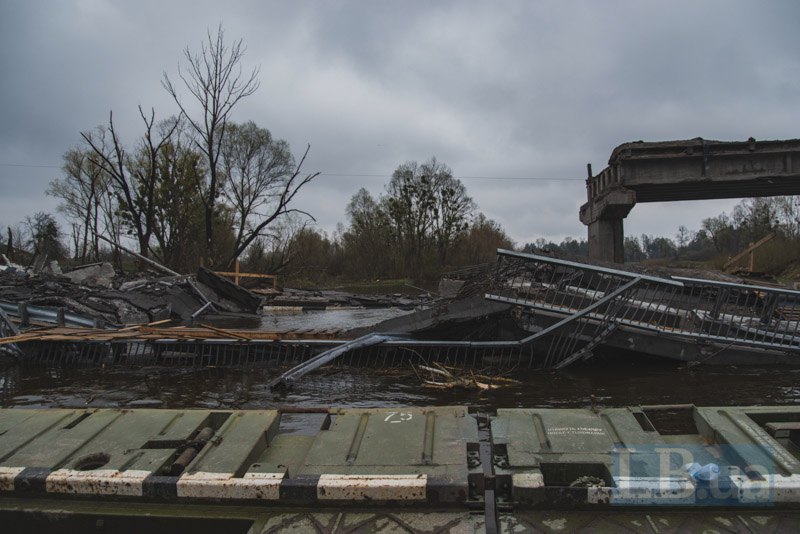
Kozarovychi. "Give Us Peaceful Sky"
We leave Kyiv with a humanitarian convoy and a military escort. Cars of explosives technicians often overtake.
Kozarovychi is the first village where we stop. The Ukrainian military approaches an elderly woman wrapped in a warm scarf.
- Good day. Don't be afraid of me. Maybe you need something? - Yes, bread and water maybe. Thank you. Glory to Ukraine! Glory to the heroes! God bless you.
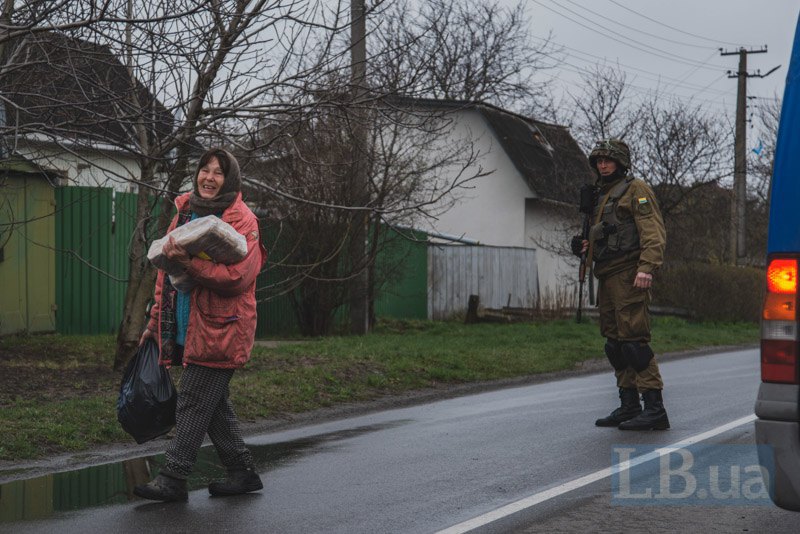
The people, mostly elderly, gather surprisingly quickly. People look emaciated and anxious. New cars in the village are treated with suspicion. Everyone receives food kits, hygiene products.
- What is this, humanitarian? The confused woman asks. - Yes. What can we give you? - We don't need anything. Only a peaceful sky.
Next on the road we see three tanks with the Ukrainian military. Our companion – territorial defender Dmytro – gives cigarettes, sausages, and canned food to the defenders. They smile gratefully and show a sign of victory.
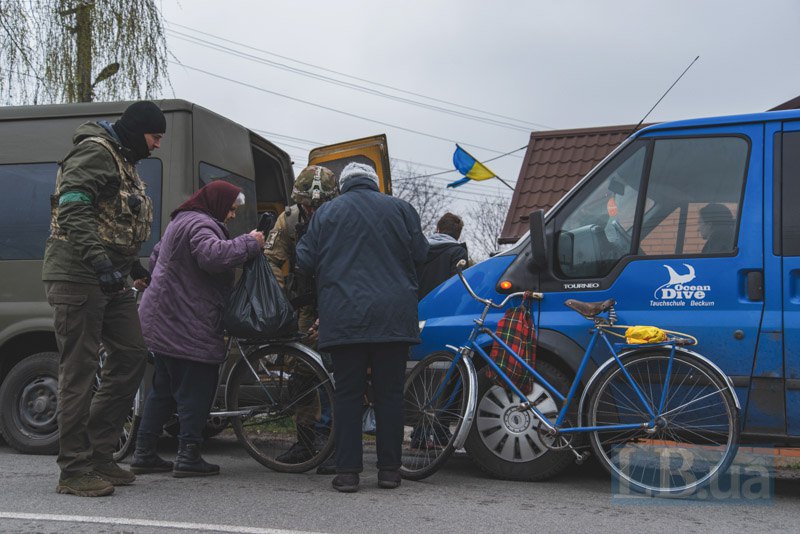
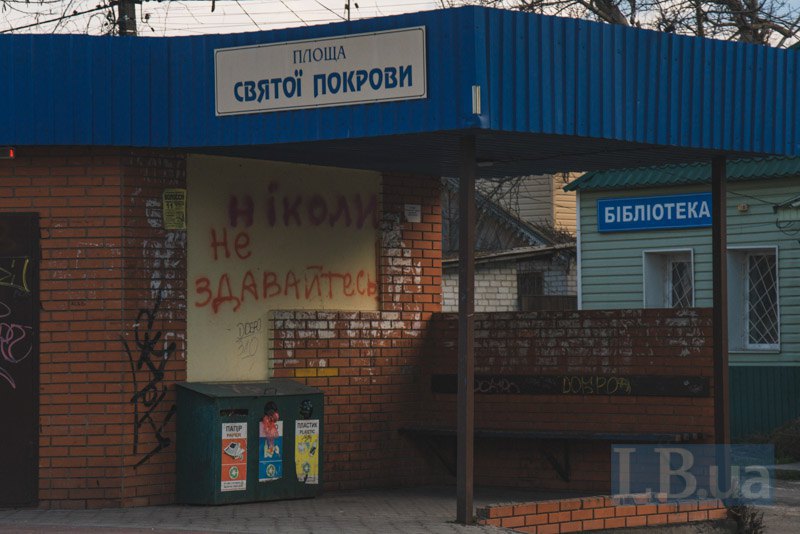
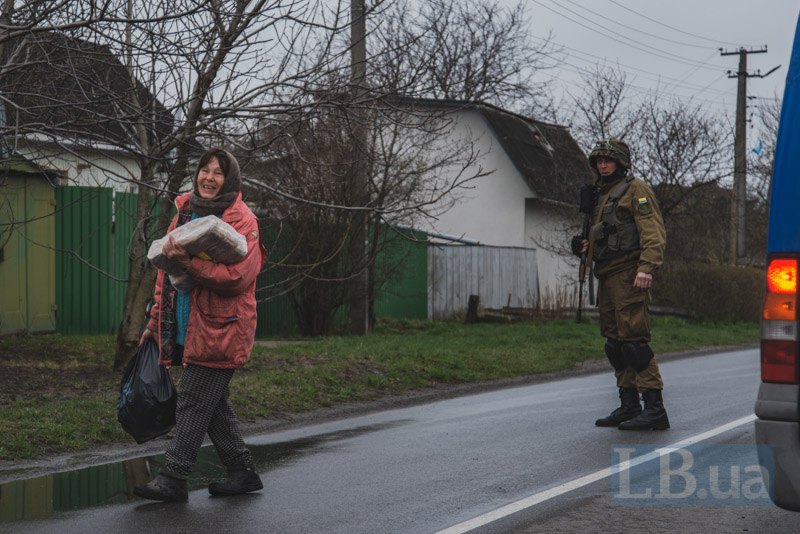
Kolentsi: Hunting for Anti-Terrorist Operation Participants
We stopped in the village which the russian military visited twice. According to locals, enemies questioned whether Ukrainian soldiers were hiding here.
"According to the address lists, the russians caught the participants of the Anti-Terrorist Operation in Donbas. They knew by name who lived here. Some were taken out with sacks on their heads, held captive for two days and released, but we still haven't found one man,” says grandpa Anatoliy.
Retired Hanna Oleksandrivna believes that the former Ukrainian servicemen were "handed over" by a local resident, a citizen of the russian federation. She says she ran out to meet the enemy column with the words: "Hurray, the liberators have come!". She offered them her help, for which she received a pack of cigarettes. Now, according to the villagers, it is handled by the Security Service of Ukraine.
People say that the occupiers did not miss a single house in Kolentsi.
"The russians stayed with us for the first time for six hours. They set up their patrols every three meters and came to us with machine guns. In houses without owners, doors were torn out and everything was taken out of the cellars, and then the dog was kicked. They knocked on my door. I went out and cried. Granddaughter said: "Don't shoot!" And they answer that they came to "liberate" us. I wanted to ask from whom, but decided to remain silent,” the elderly woman remembers with tears. Leonid, a fellow villager, was shot just as he was driving his car. They could have killed a man for asking, "Guys, what are you doing here?" And the Americans had a shelter for orphans here. They were well supplied with food; the cows were kept. And these rashists came in two KAMAZ trucks, destroyed locks and took everything away: food, chainsaws, children's toys, even guitars.”
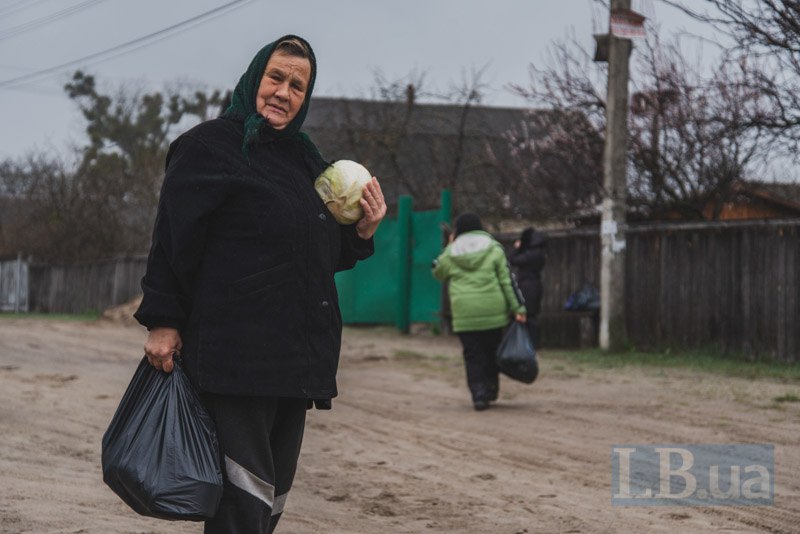
The Ukrainian military asks her not to cry.
"It's probably from happiness that they are here now," he replies.
Volunteers are distributing humanitarian aid near the survived church. According to a local woman, a month ago three young men were interrogated in front of the whole village: “The russians caught young guys. They undressed them completely under the church, looked for tattoos and beat them. They were released in an hour. And then they stole wine from the priest, which was intended for communion.
Locals say that now the village lives a quiet life: people work in gardens and fields. No one makes a step in the woods, although there are many hunters among the inhabitants. The occupiers generously mined forests and stole weapons from locals.
"They also confiscated hunting weapons according to the lists. Those who did not give them were severely beaten. Roman's weapon was confiscated, but his son-in-law did not give it away. They looked at the lists, came back and beat this guy. He gave his weapon, but they still took him away and tortured him. They behaved worse than animals,” grandpa Anatoliy finally remarks.
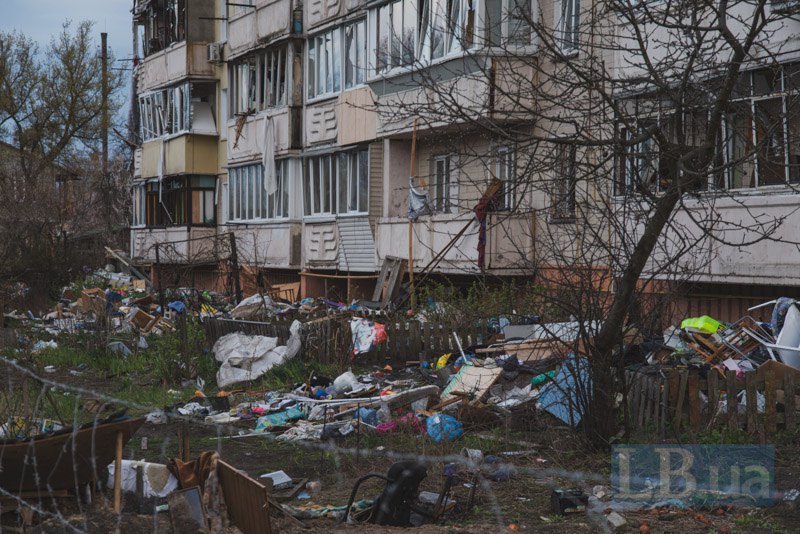
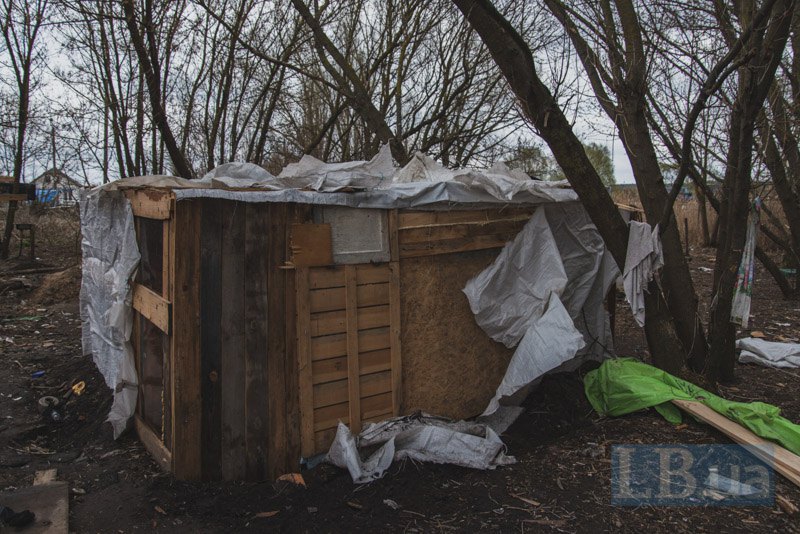
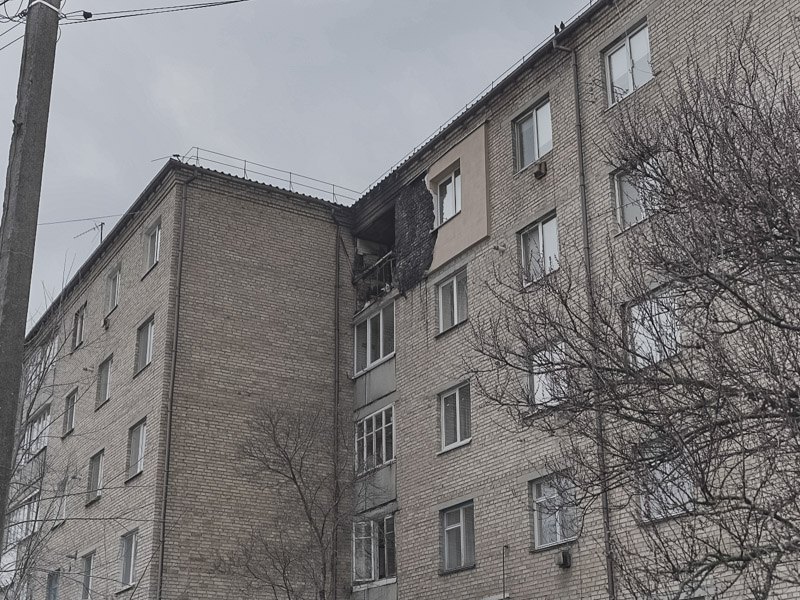
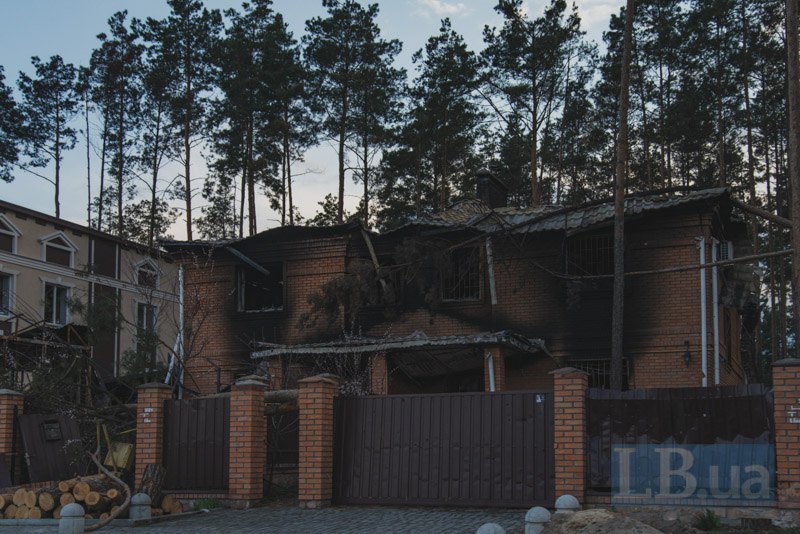
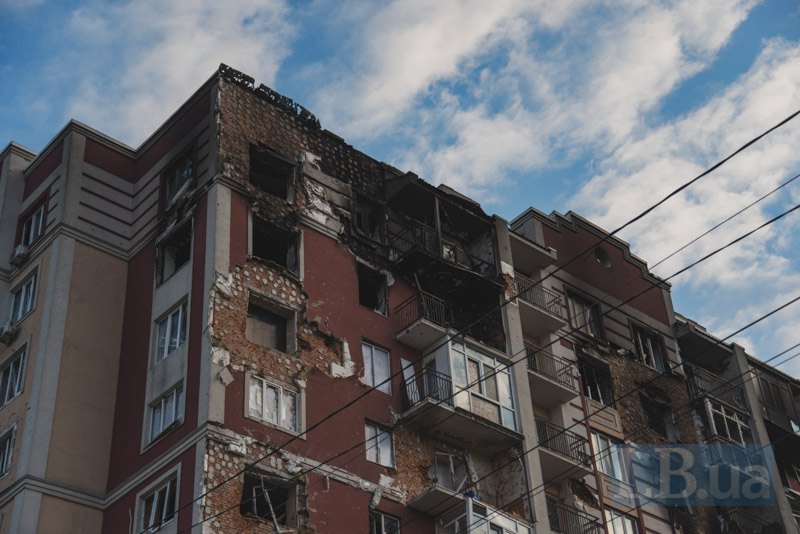
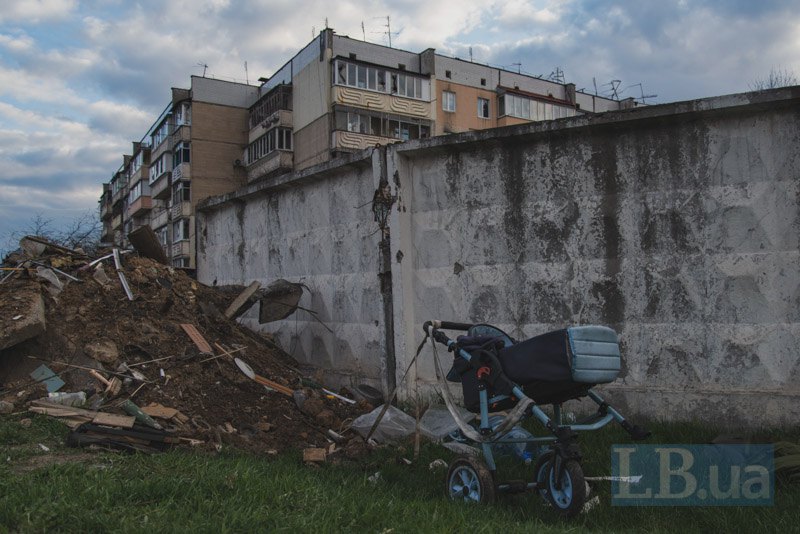
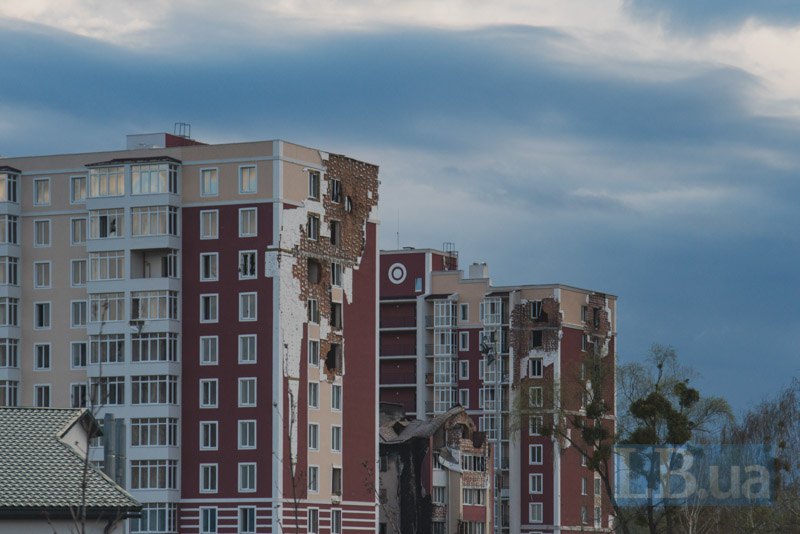
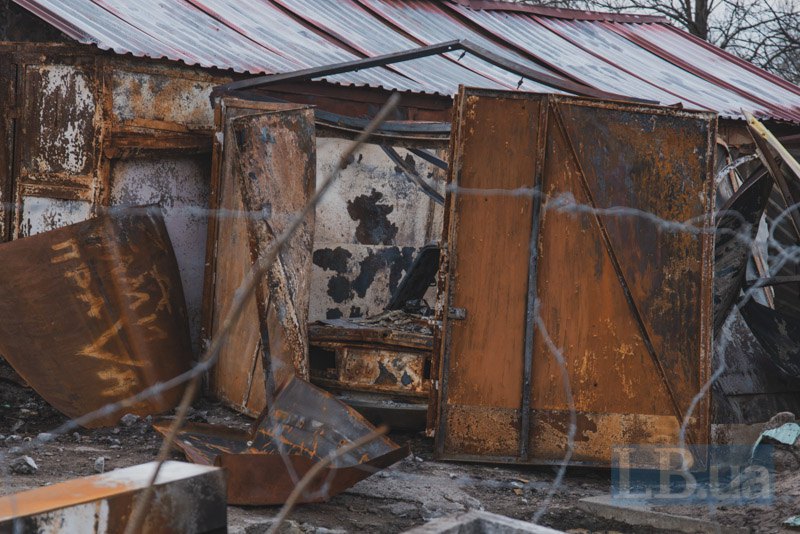
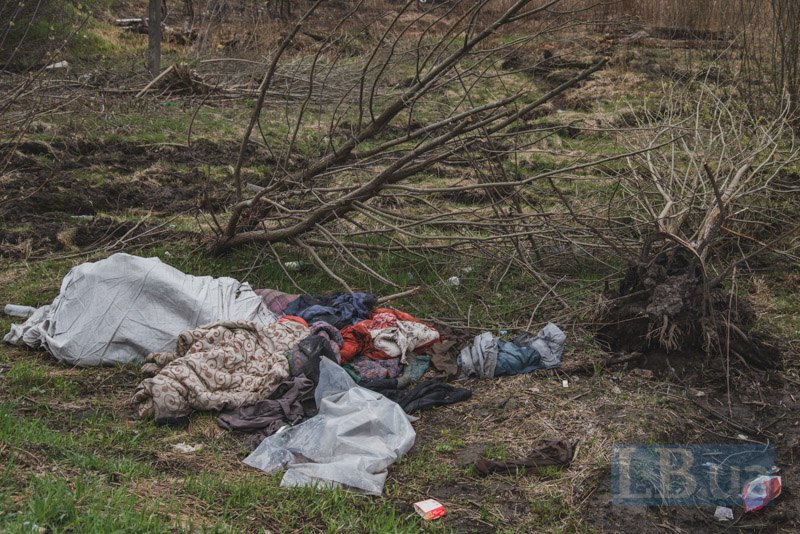
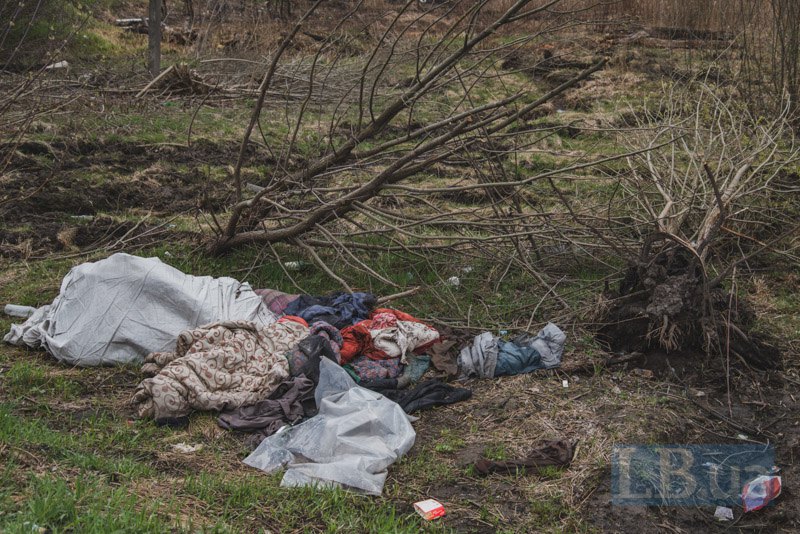
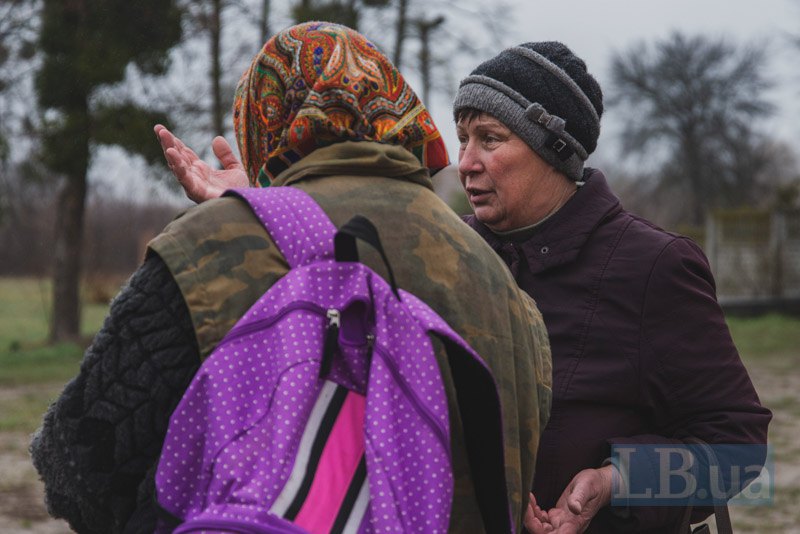
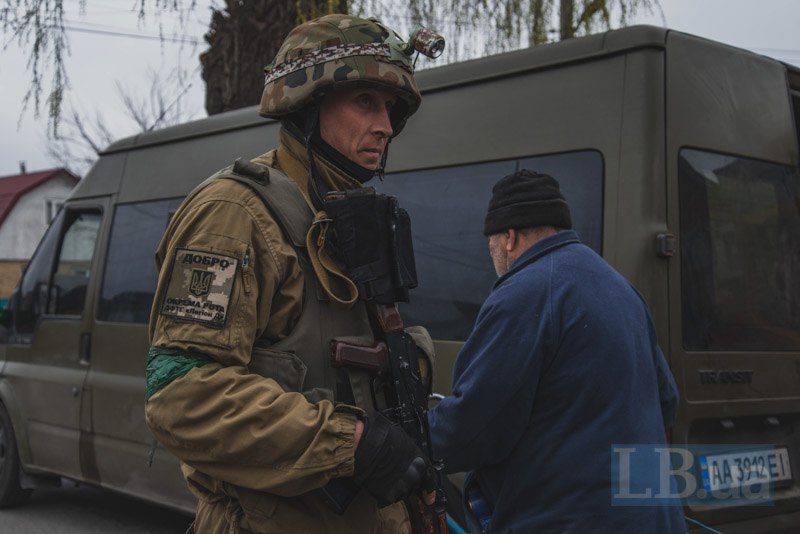
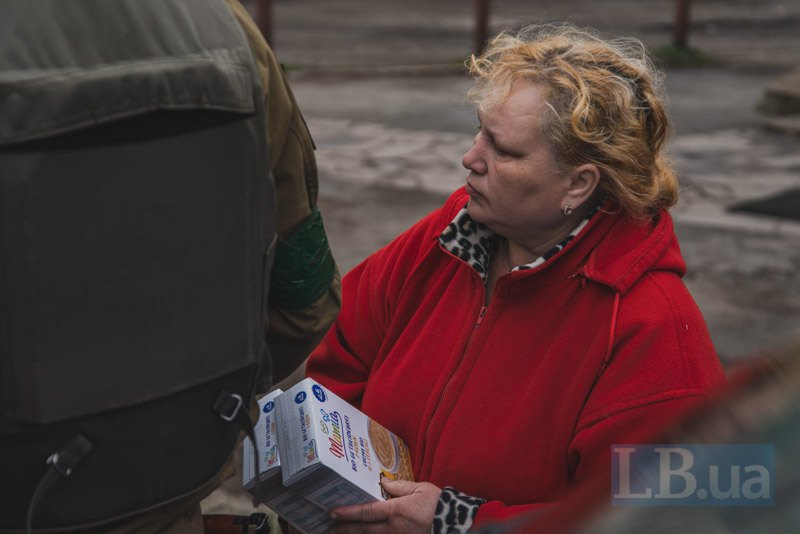
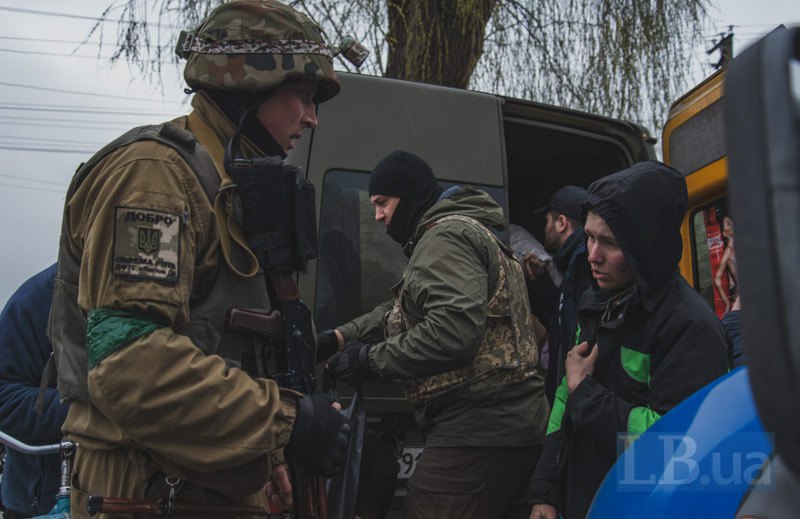
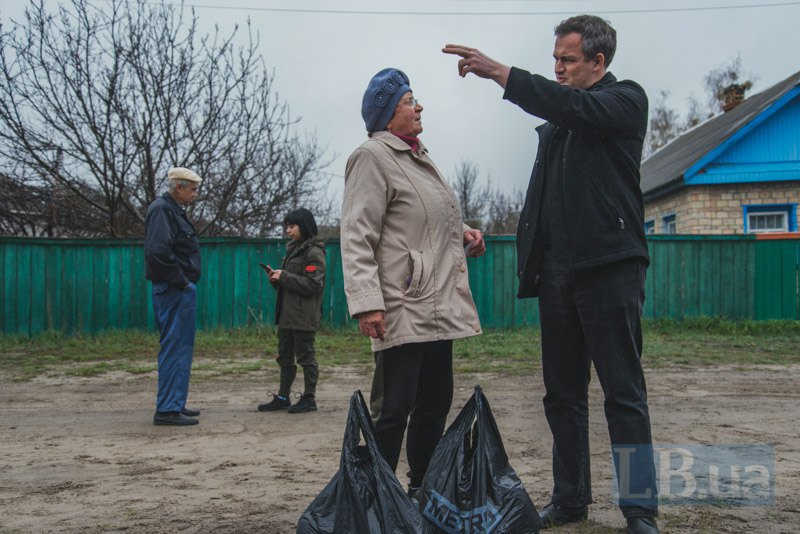
On the way out, through the back window of the car, I notice dirty and hungry dogs running to the church. They are fed by locals, taking food from packages.
Termakhivka: "They were beaten, taken out to shoot one by one"
At the entrance to the village a cross is torn from the ground. On the left, the former russian parking lot is a village house. The owner says that her home was taken away with the words: "This is no longer your land, this is all ours."
The yard is littered with rubbish - the remnants of the life of the enemy army: boxes of their dry rations, packages of juice with the name "Guest". In the middle of the yard there is a hut with the inscription "Three Heroes", which was made of something unknown. Inside the house are piles of garbage, unsanitary conditions.
In March, civilians were tortured here for 15 days.
"The russians captured five young men: my classmate Bohdan, another Bohdan, a neighbor, Ruslan, Andriy and Denis. These are ordinary guys, and they were called fire adjusters, although we had no connection at the time. Bohdan was shot twice in the legs and received no medical treatment. They were beaten and taken out to be shot one by one. They fired into the air and then interrogated others so that they would be afraid to tell them something. The boys said nothing. Then their seniors came by rank and kicked ours in the face. They could not even go to the toilet properly because their hands were tied with wire all the time. Once they brought a man without one ear, with a "military ID" on a broken chest, with all his limbs shot. The russians forced the prisoners to dig a grave and bury the corpse. There is even a cemetery here. The russians in our village took everything. They went to people's homes and simply took away even lingerie, sneakers, and children's clothes. Toy cars were stolen. And they kept saying that they came to free us,” Oleh says.
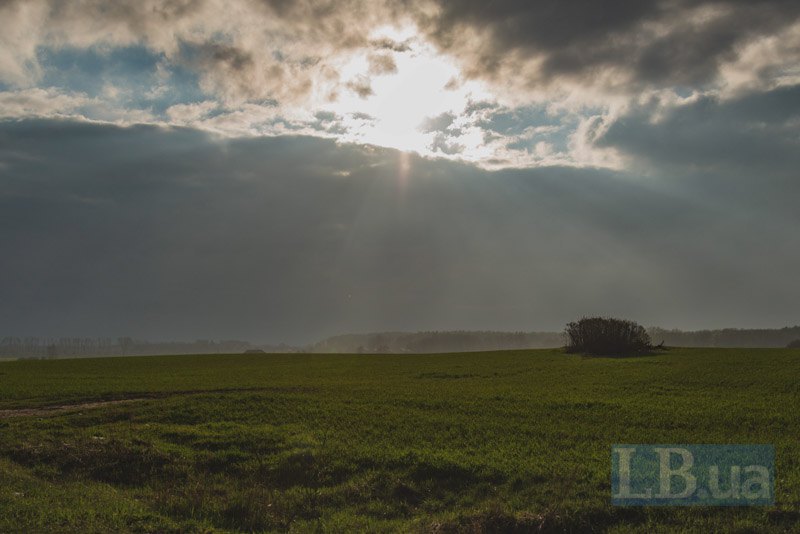
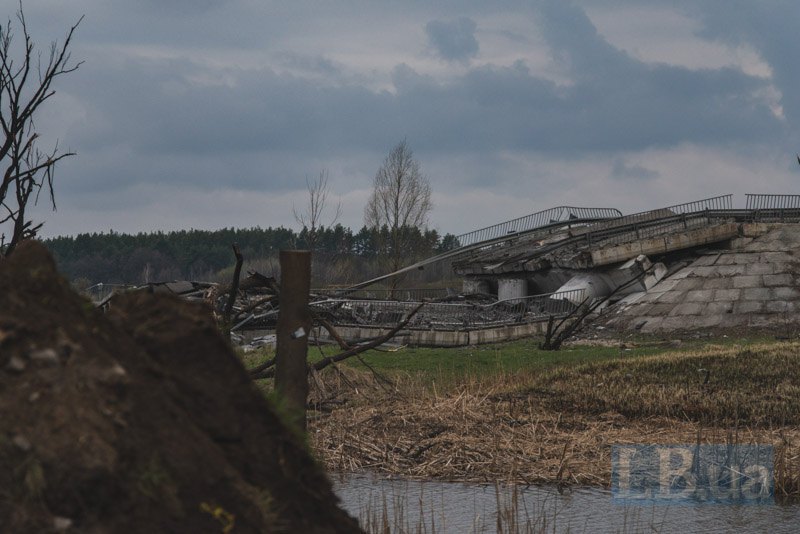
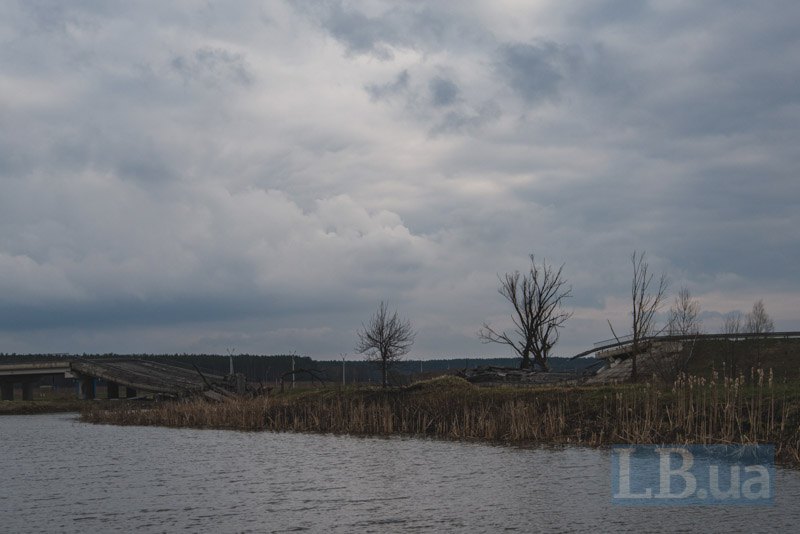
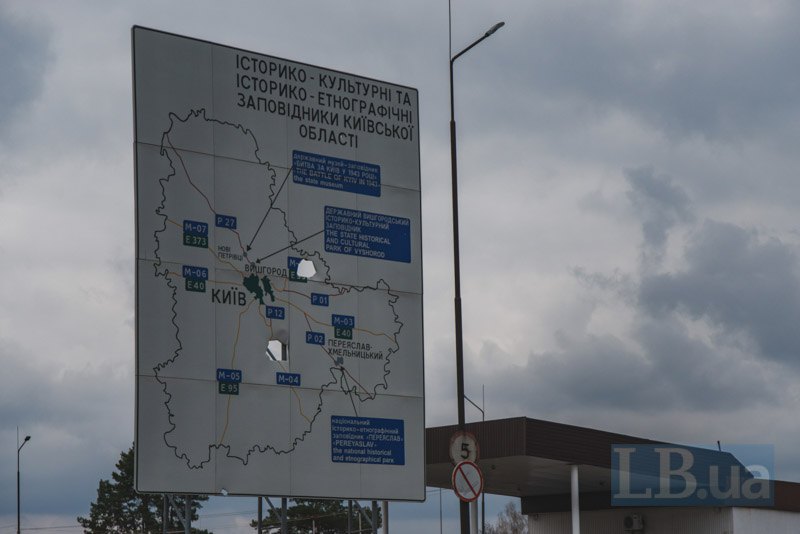
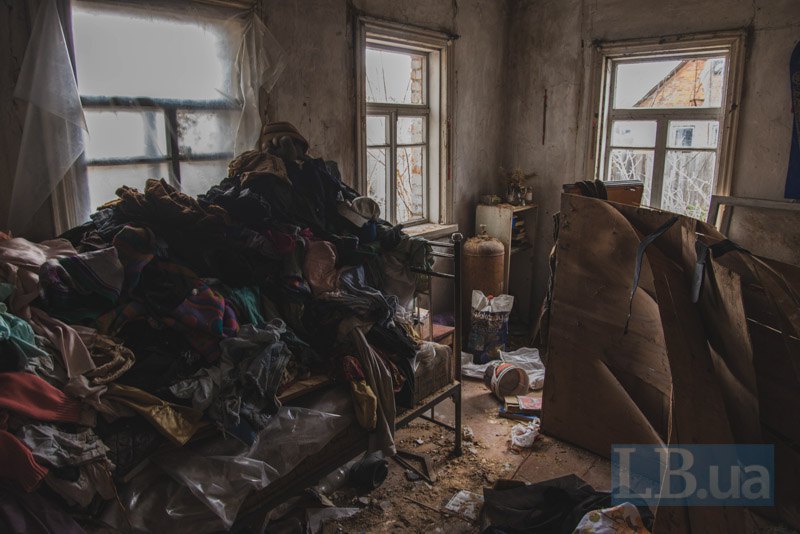
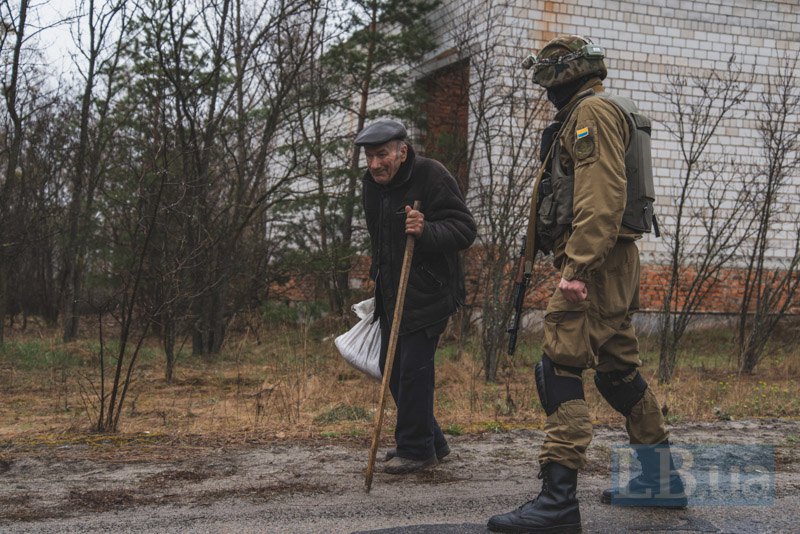
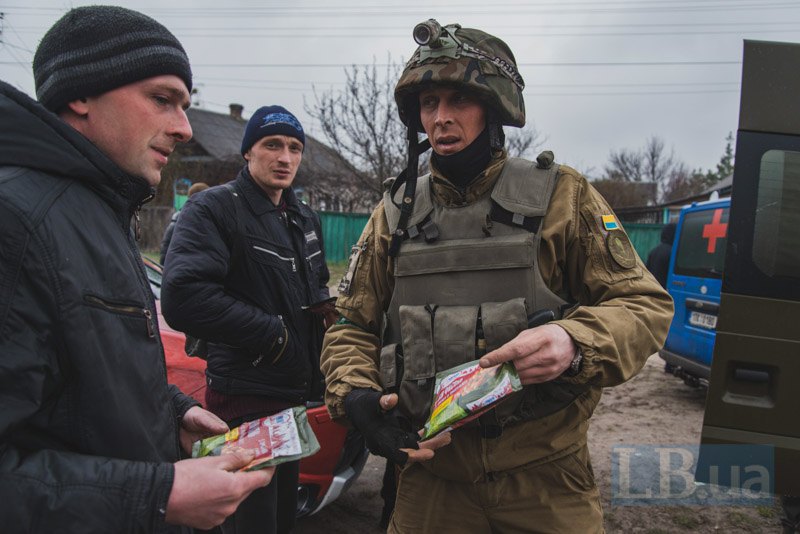
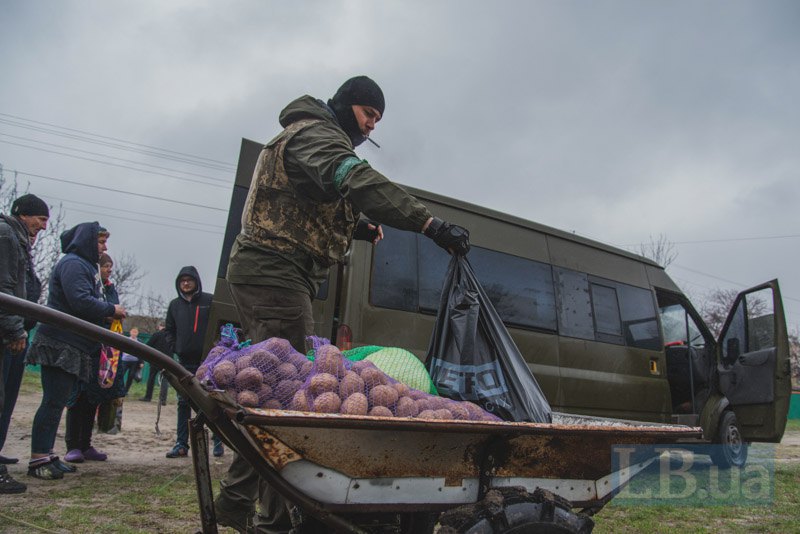
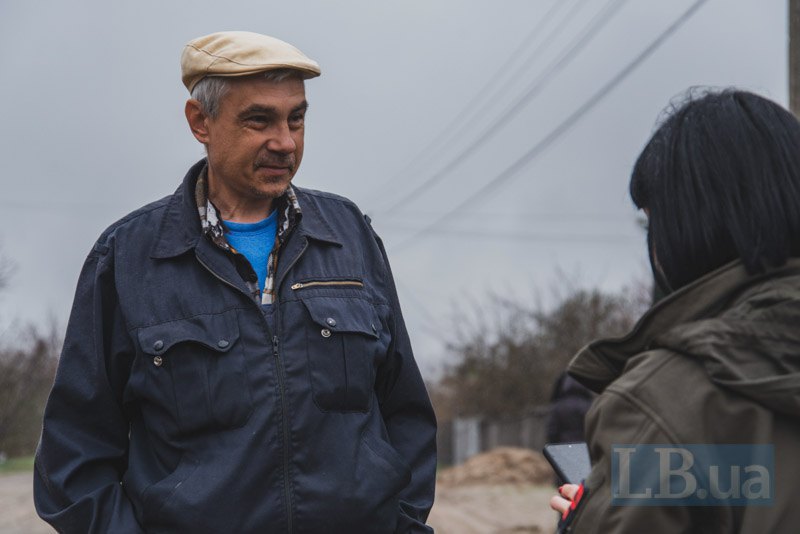
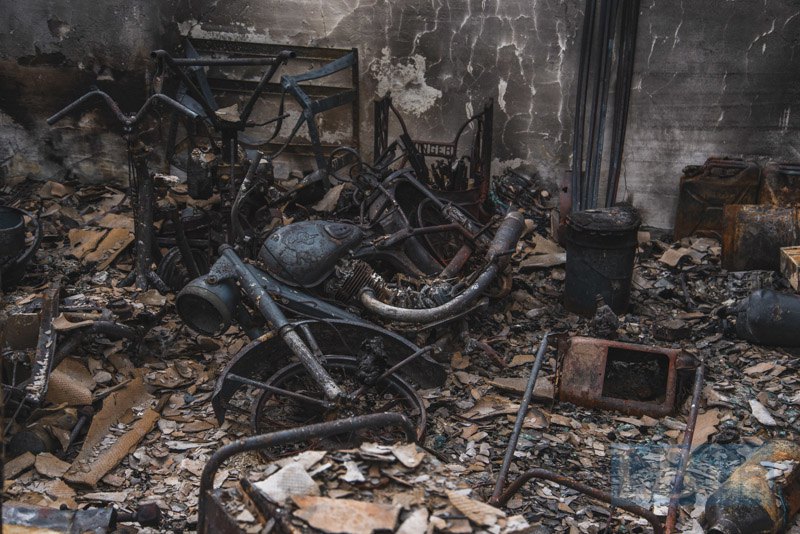
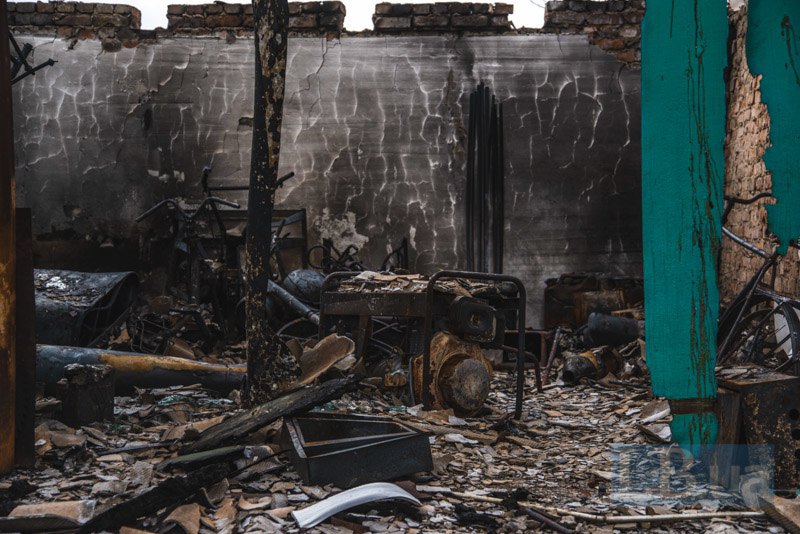
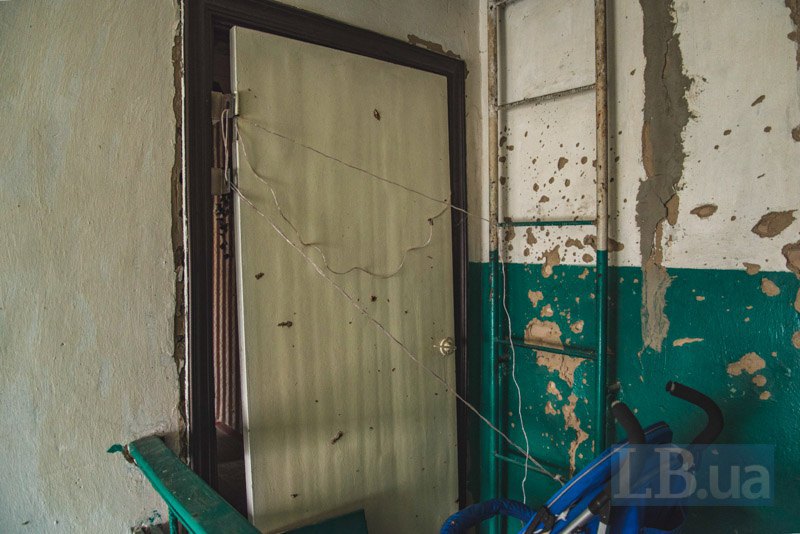
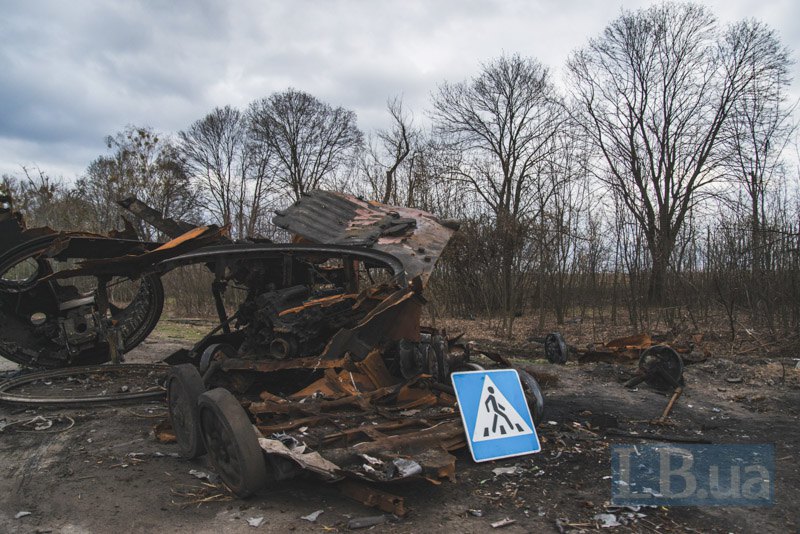
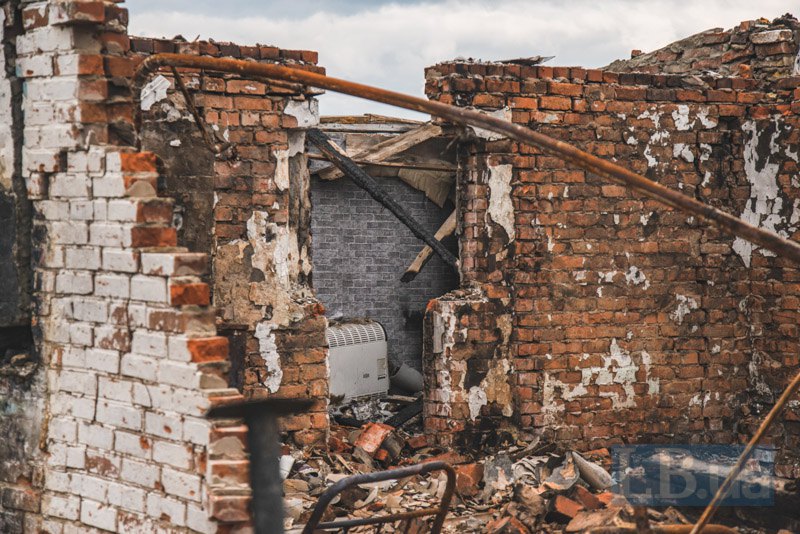
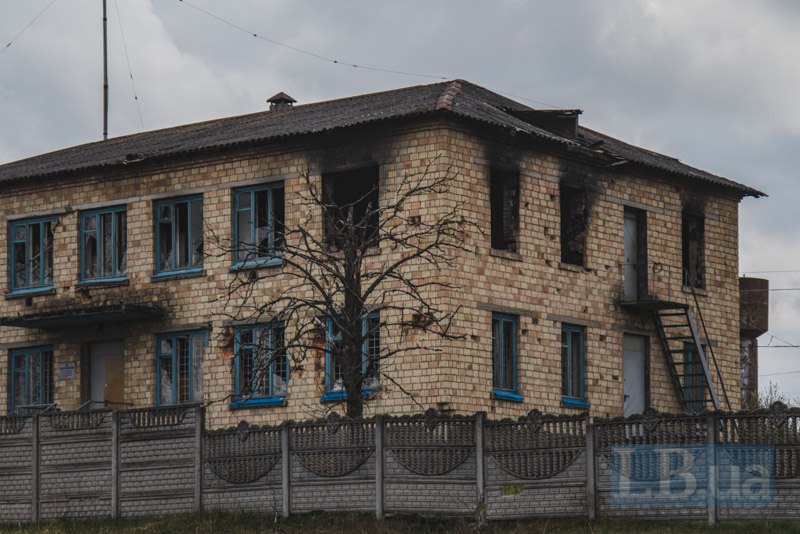
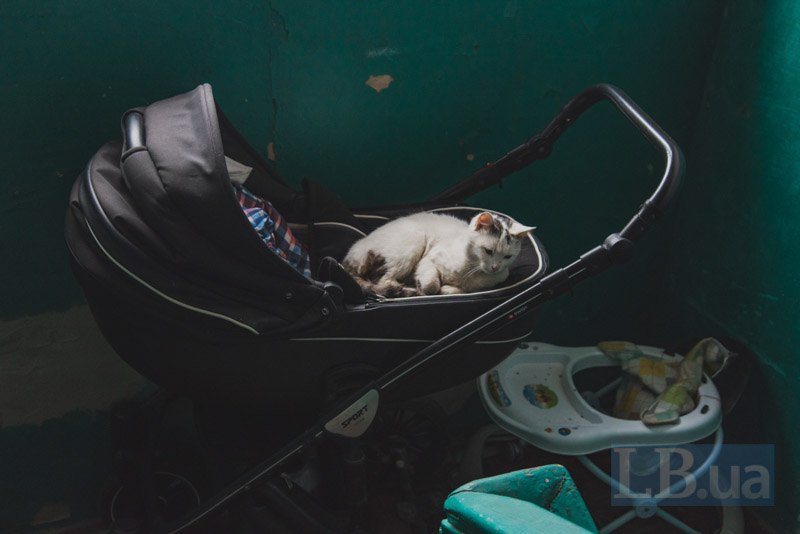
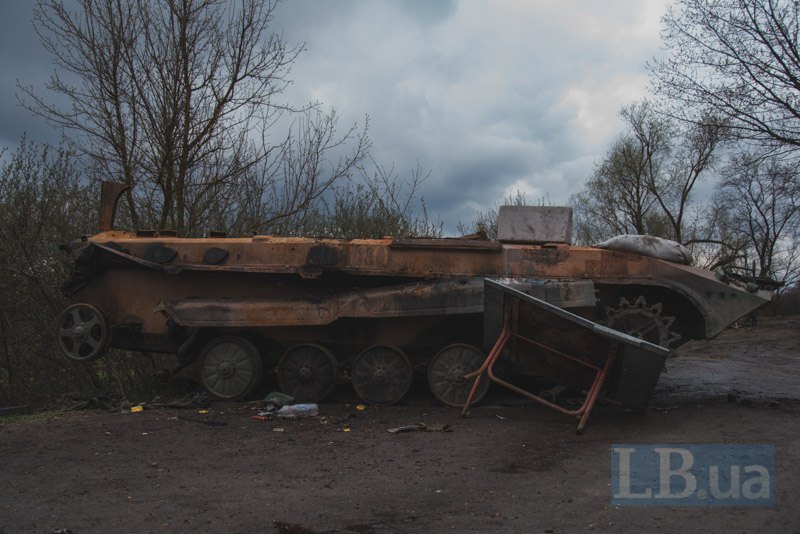
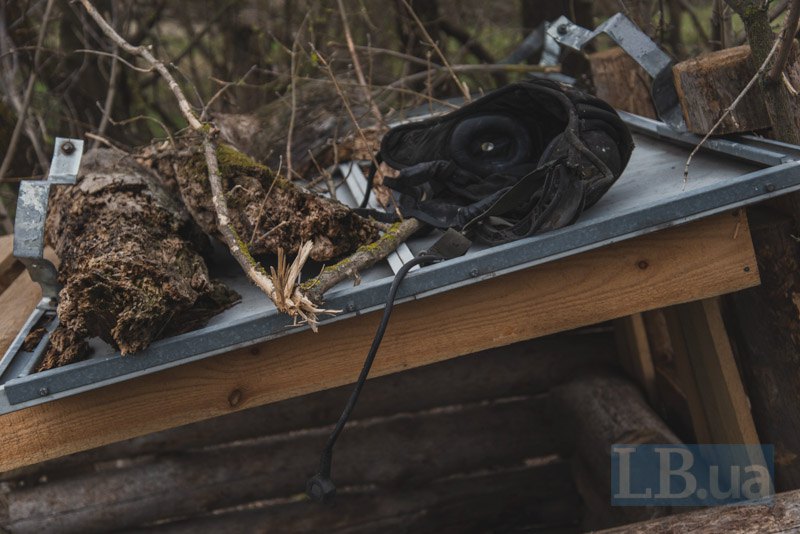
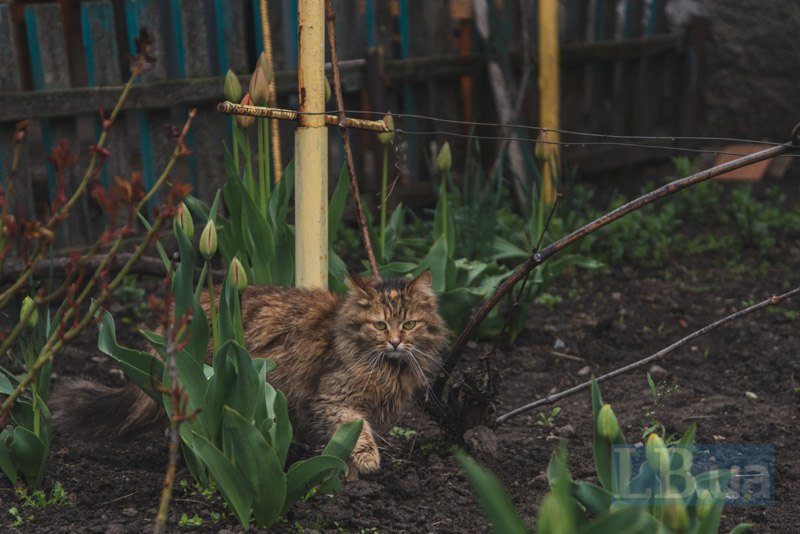
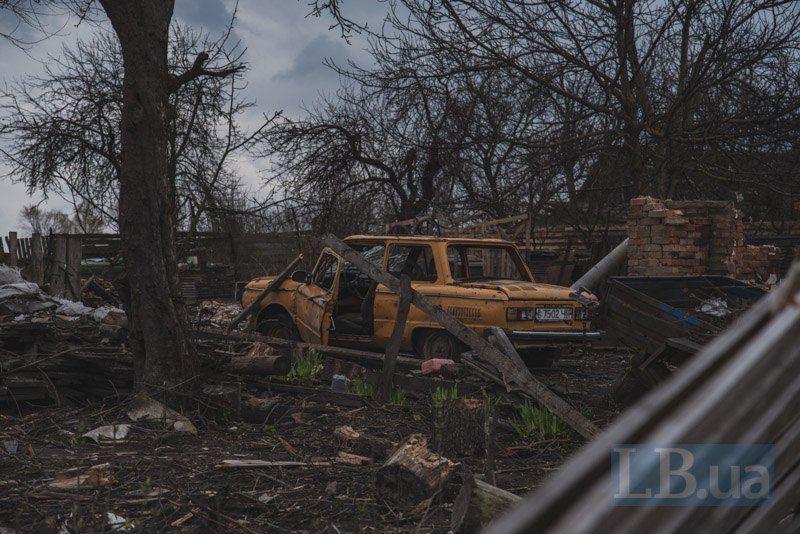
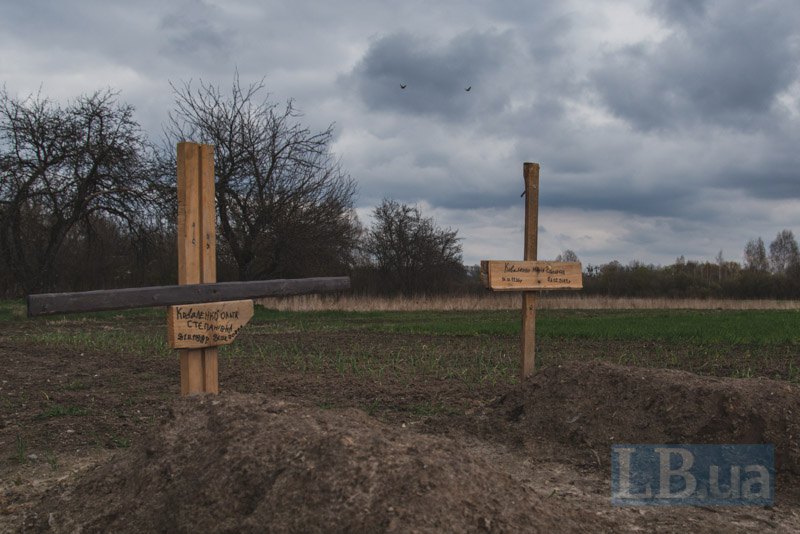
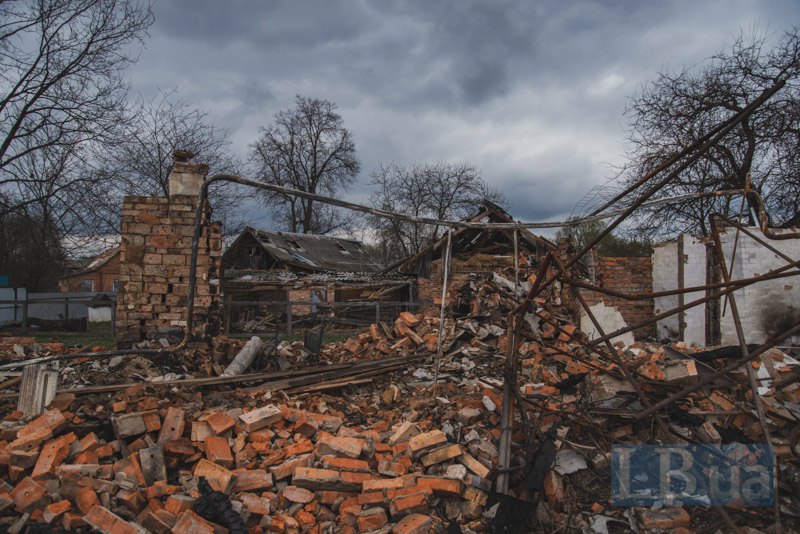
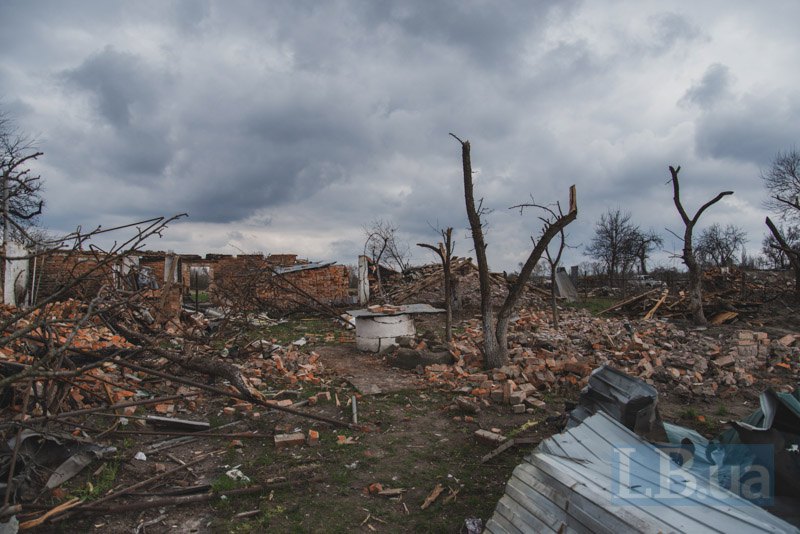
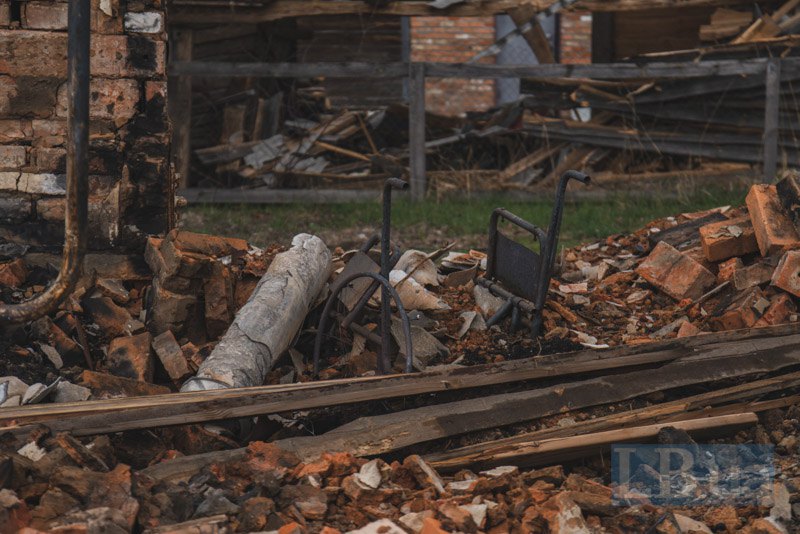
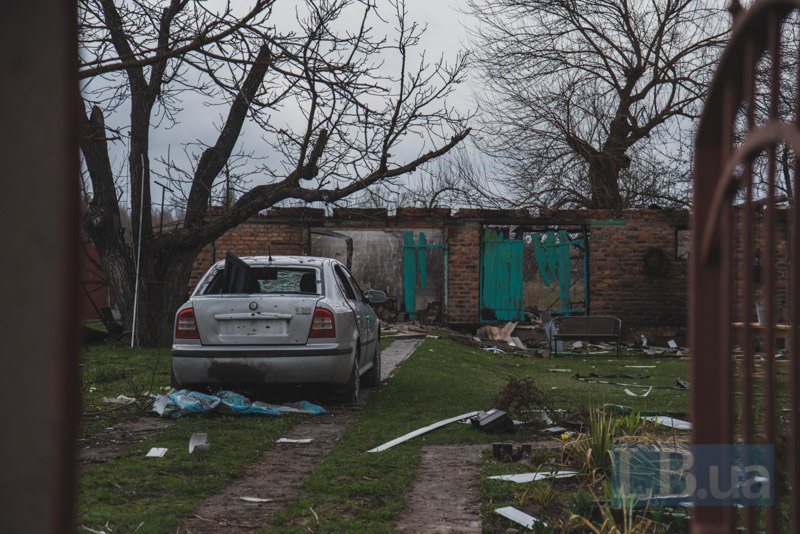
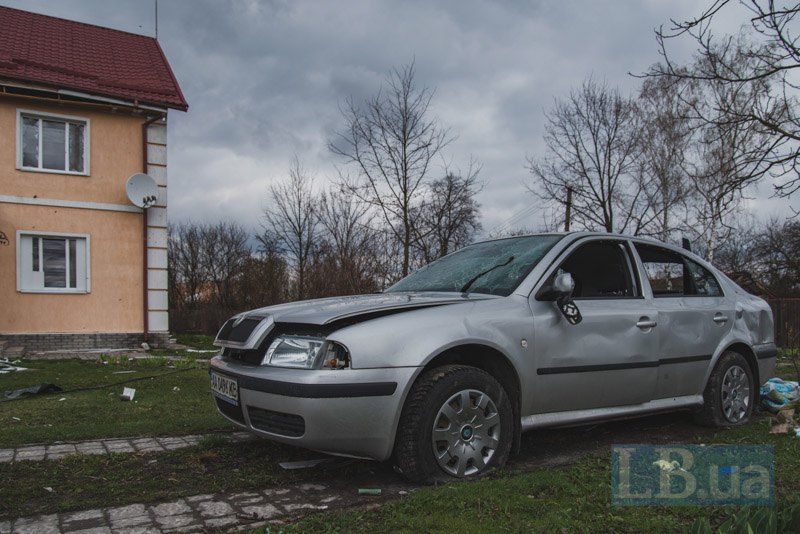
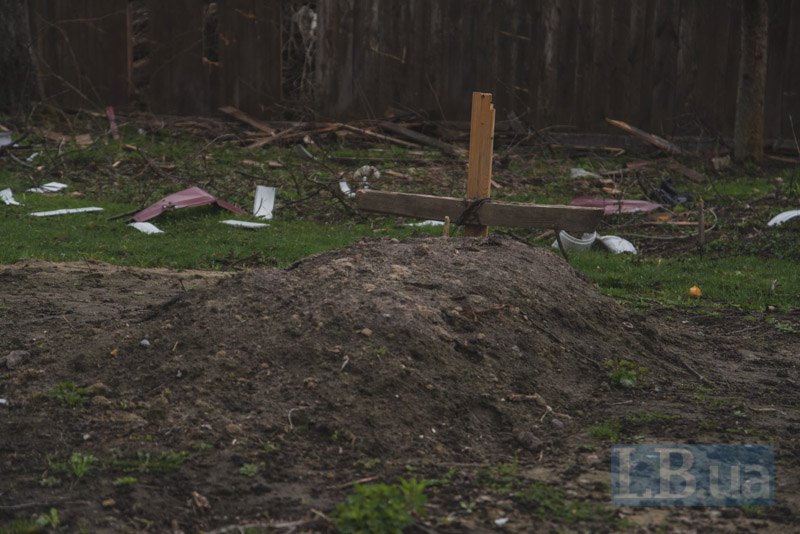
During the occupation, a man with his young wife and 9-month-old child hid from shelling in the basement. And when the fighting intensified, his friends were captured, he fled with his family through the woods from the enemy to hide.
In Termakhivka they say that the occupiers did not spare even women and children: they were abused and constantly intimidated. Residents of the two-stored building in the center of the village were often lined up and told they had one way: either to walk to Belarus or to be shot.
"Once their two guys, Muscovites, went missing. The russians came to us and said, "The children stay, and you are leaving." Put everyone in a row: women, mothers, retirees. Recharge machines. My daughter never spoke russian, and here she began to ask in russian-Ukrainian words not to shoot, because the children are small. The children looked out the windows and cried. The russians say, "If we don't find two of ours, we'll shoot you all!" And at night they pointed at the windows and shouted: “Maksimov! Ivanov!” They found them later. Those drunks were wandering somewhere. And if they didn’t find them, they would have shot our house,” says Halyna Serhiivna.
The woman's hands are shaking. While we are talking, her 10-year-old grandson arrives on a bicycle, notices people in camouflage and immediately hides behind his grandmother. The old woman tells the child not to be afraid, because it is the Ukrainian military. The boy and the warrior shake hands.
Police communicate with locals and document war crimes and crimes against humanity.
“And then they came again, put us in a row and said: “Your house is under control. We are looking for saboteurs." And only retired people with disabilities and mothers with children live here. Searches were constant. The doors of the apartments were smashed with grenades and the houses were turned over. What are you looking for in my drawer? They were not looking for gold or money. They were looking for saboteurs. In the drawer, eh! And I had a dish on fire. I thought that while he was looking for those saboteurs, there would start a fire. I run to the house, and a machine gunner runs after me with the words: "Don't go, because I will shoot." But how not to go if there will be a fire! My God, they were looking for something in the dumps, the hatches were opened. Well, what are you looking for there? They came to us five times a day, they had already trod the path. They just took my phone, which was presented to me for the New Year by my son. And the apartment of neighbors was robbed three times. They took everything. Bare walls,” said Olga Mykhailivna, a neighbor.
At the turn to Malyn we see the ruins of ten houses. Some houses were destroyed completely. On February 26, the russians dropped two air bombs and killed five civilians.
"The first strike was to the pond, and the second - to my house. My luck is that I jumped into the far room and fell to the floor, because otherwise I would not be there. My mother was disabled, here is her wheelchair. And my mother's sister was thrown out of the house and killed in half. People helped bury them in the garden because russian soldiers did not allow to bury them in the cemetery. And if we jumped into the cellar, we would be alive, the door resisted. But who knew what would happen? I think that the russians did not come here to fight, but to loot and kill. This is murder, what else to call it?” Serhiy tells.
The man leads us to the graves of his relatives and falls silent with a stony expression on his face. He says he is awaiting the arrival of forensic experts for exhumation and proper reburial in the cemetery. Near the graves is a recently plowed piece of land.
“What will I do now? The garden is planted, and we’ll see,” he says.
In the yard opposite, the couple is buried in one pit. A neighbor says he found a woman near his house. Apparently, hearing the rumble, she ran to his cellar, but did not have time. She had her head cut off with a fragment and her husband's leg torn off. Soon the russians looted their house.
The only living are yellow flowers in this yard that broke through the ground littered with the wreckage of an air bomb.
Ivankiv: "Movie" with Belarusian Humanitarian Aid
There are definitely many soldiers in Ivankiv, mostly surviving houses and a crowded square in the center of the village. Diagonally from the village council, the upper five-stored apartment was burned to the ground, apparently with a mortar mine or a tank shell.
“Chechens came to Ivankiv on the first day of the war. I identified them by their beards and impudence. Destroyed apartment in my house is a consequence of their arrival. They just shot there to get people under control. Thank God we were in the basement at the time. The siren sounded in the house, then there was still light and water. We climbed out of the windows and put out the fire. It got to the house of a peaceful good grandmother, who had already left for relatives. When the russians came in a column, they intimidated us and aimed with laughter at civilian cars. The Buryats, the military from Tver and Pskov mixed with the Belarusians, followed the Kadyrovites. There were even ours from Kharkiv who fought for russia. The Orcs set up a checkpoint in the square, imposed a curfew and captured people who put out the fire when it broke out. My friend's father, who can't live without pills, was captured and then thrown out in Chernobyl like garbage. Terrible battles were on the outskirts of the village. When the russians retreated, they stole what they could. The tanks had washing machines, sacks of potatoes and onions. But, fortunately, people were not killed then,” said local resident Andriy.
In Ivankiv, about 30 houses were damaged by fragments from enemy shells and March 8 Street was completely destroyed - it is next to the ring road where the fighting continued. On February 25, the occupiers dropped two powerful bombs here. No one was killed because the residents were hiding in the basement. One of the owners of the destroyed house smiles bitterly when he hears the words: "The main thing is that everyone is alive."
“I’m not in the age to rebuild from scratch. Everything is beaten and destroyed,” he says. “I had no contact with the occupiers, but I heard that they shot people: for example, a priest who was leaving the service and seemed to want to stop a column of russian equipment. Those who fed his dogs were also shot. The bodies lay for a very long time, until they were taken away and buried."
"There Was God in This Region, He Just Saved People"
According to the official data, the russian army killed 45 people in the Ivankiv community, and 10 residents went missing, according to the head of the Ivankiv village council Tetyana Svyrydenko.
We are talking in her office, where a portrait of Taras Shevchenko and the emblem of the community with the motto "In the name of life" are in a prominent place.
“Ivankiv community is the largest in Ukraine and in the region - 81 settlements. There was a God in this region, he just saved the people. The great guardian angel is still above us because in such destruction we have a relatively small number of victims. The biggest destruction took place on the western side of the community: there is almost nothing left from Zakharivka and Pidhaine. The villages of Kirove, Sloboda Kukharska, Zaruddya, Teterivske, Lyudvynivka were destroyed 50/50, Kukhari and Varivsk were destroyed by 80%,” says Tetyana Svyrydenko, “In Ladyzhychi up to 30 houses were destroyed.” In Pidhainyi mine pits are 7-8 meters deep, half the width of my office. And there is nothing in that village: no factory, no military unit. Why did they need this village? It is impossible to understand their logic. However, they have enough cruelty. As civilians approached russian checkpoints, they were shot without warning. At the crossroads of several villages, where the columns went, up to 500 meters no one gave the opportunity to approach and survive. Both cars and people on bicycles were shot immediately.”
According to the head of the community, on the first day of the full-scale offensive, almost no one left Ivankiv. russian vehicles left the exclusion zone around the clock and continuously. There were no evacuation corridors, the community lived in full occupation.
Tetyana Dmytrivna tells how she managed to survive despite the occupiers' hunt for government officials.
"You can imagine the situation: on February 24, I, the deputies, and a deputy of the regional council, came to work, the head of the police came in and said, “We are retreating.” The head of the prosecutor's office and the territorial defense also retreated because the military registration and enlistment office said to evacuate. At my request, the head of the regional state administration left emergency medical care. Four ambulances were at work throughout the occupation. They rescued us: they quickly evacuated people who wanted to leave very dangerous regions, rescued those who carried bread, took medicine, and took the sick and wounded to the hospital. I was here all the time. Until March 6, it was still possible to go to the shops and the bakery. And on March 6, the occupiers destroyed our "towers" (mobile communication - LB.ua), and we were left without light and communication. They started looking for anti-terrorist operation participants and heads of local self-government bodies. I thank the people who hid me and known for an hour where I was until March 31. They saved me from the occupiers."
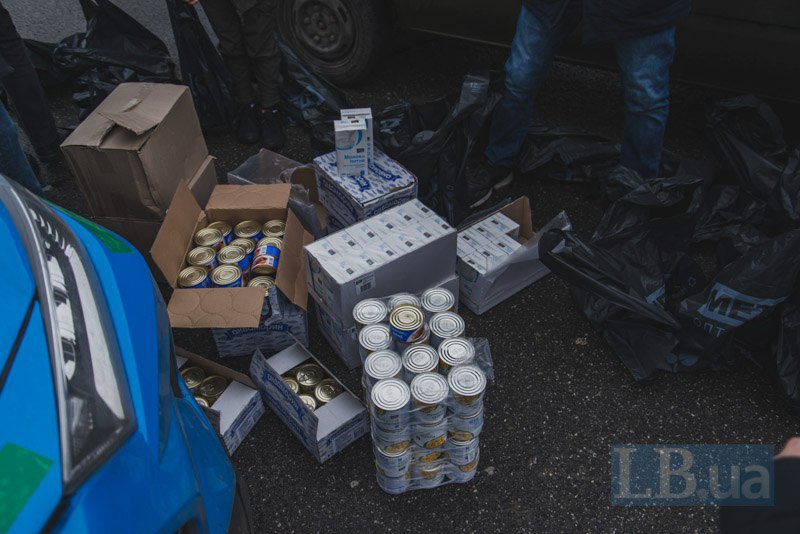
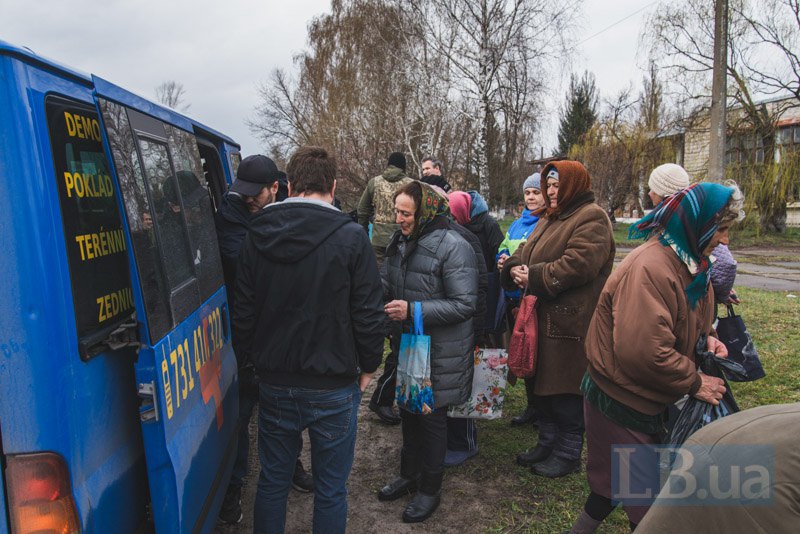
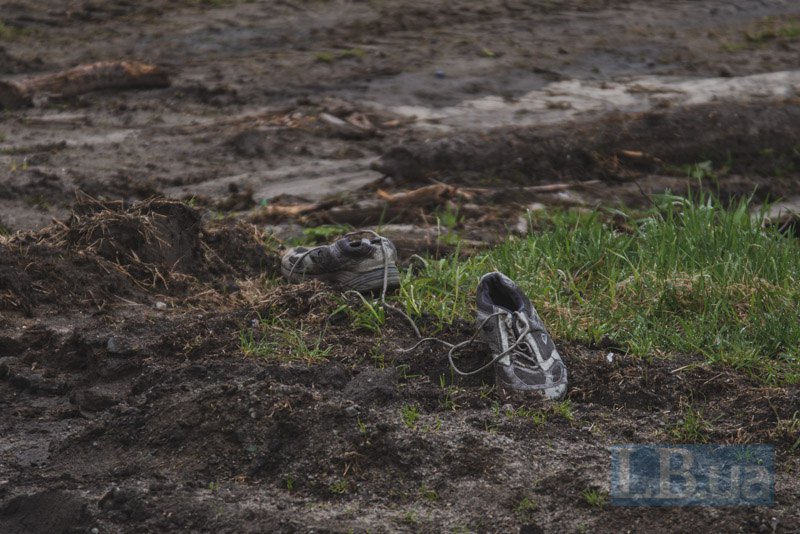
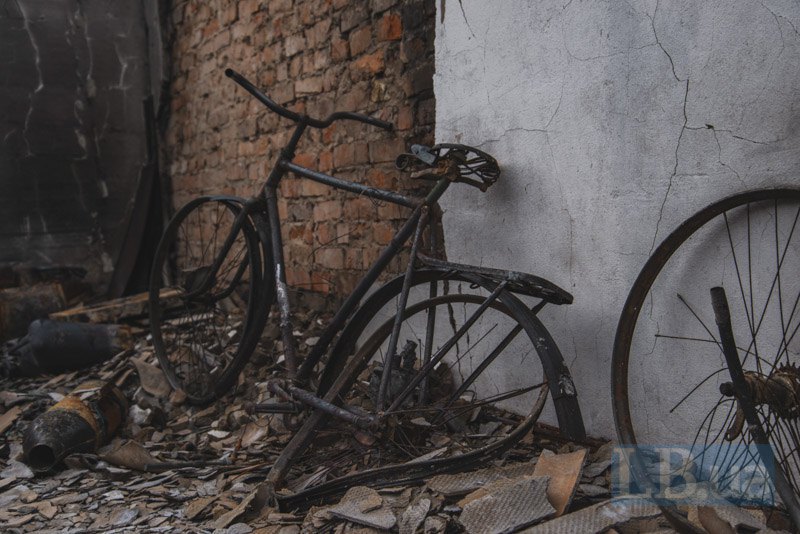
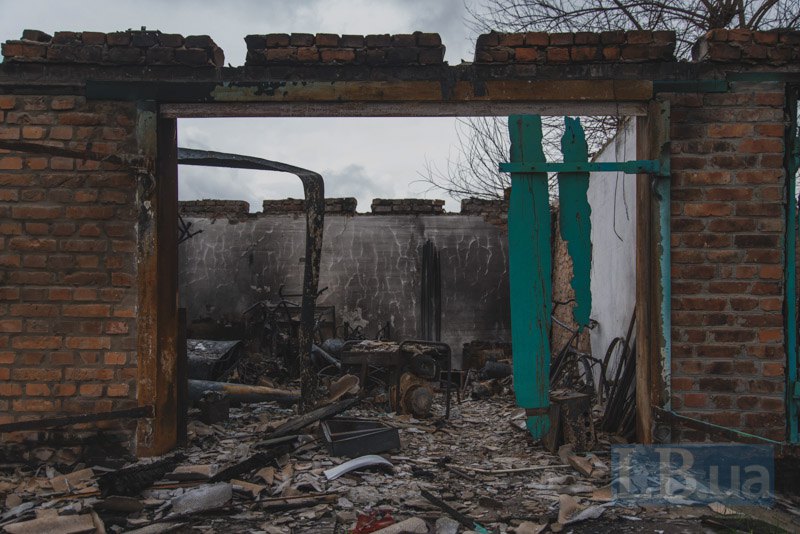
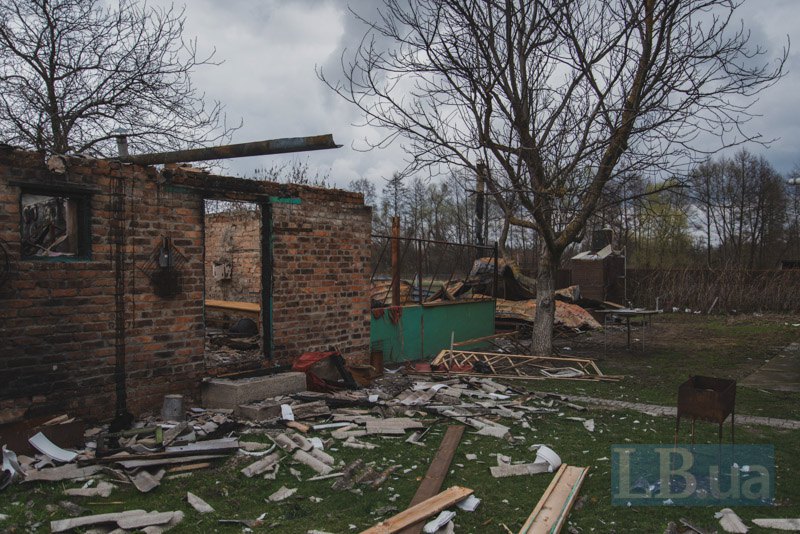
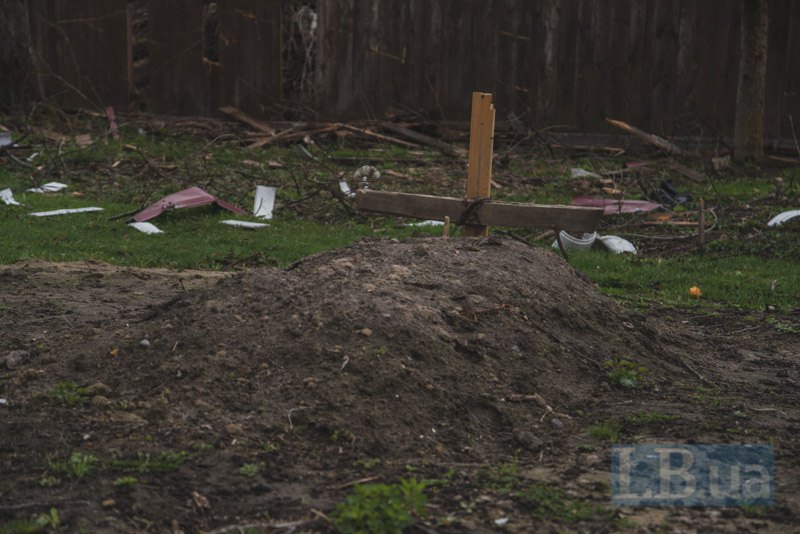
The head of the community says that during the occupation the bakery and the hospital, emergency services, and private entrepreneurs who opened shops and pharmacies for 3-4 hours were working.
"There are entrepreneurs who left and said: “Dmytrivna, hand out our shop," she recalls. “In the full occupation on March 3, we centrally distributed the store to zero, the chicken was taken to boarding schools. And since March 6, there have been moments that cannot be published… I will say one thing: our military worked well,” she recalls. “There were Kadyrovites, Buryats, and russians and the equipment was with the letters "V", "Z". When the Ukrainian military began to destroy them, they went to the central streets of Ivankiv and hid between the buildings of civilian neighborhoods. They covered themselves by people."
The civilian population in the region was treated differently. The russians were surprised that many people remained, and no institution worked. And they were annoyed that not everyone took rations from their hands:
"russians in the center of the square handed out Belarusian humanitarian aid. They filmed it. Then they went to a working bakery to make a mass "movie". Not everyone rushed to their humanitarian aid, but calmly waited for bread.”
Tetyana Svyrydenko admits that there were traitors in the area. They handed over participants in anti-terrorist operation and drove to addresses of residence of employees of local governments. Some of them came here to live a few years, some a few months before the full-scale invasion.
“The elders and the citizens provided information, the SSU is working on collaborators. Police detect, document, and detain looters,” said the community chairman.
Now the Ivankiv community is coming back to life. Utilities are working in the district; the court and the treasury have resumed work. Electricity was restored in 55 settlements. Water supply was restored in 50% of the rural area. There are shops, ATMs, and Ukrposhta employees who deliver pensions.
Currently, 50% of the district has been demined. Explosive’s technicians work every day, because there is work on the road, in the field, and in private houses and yards.
“We are waiting for full demining so that everyone in the agricultural region can cultivate their piece of land. We understand that there will be a great reconstruction of Ukraine. Everyone must completely plant their field, and in that field, it must be not only for them but also for those in the neighborhood. I hope that by May 9 the Armed Forces of Ukraine will make mincemeat out of the "orcs" and everything will be fine. And then we will rebuild the country” concludes the head of Ivankiv.
On the way back, the sun rises and illuminates the green field. We see storks that have returned to their nests, those that have survived.
The occupiers destroyed everything in their path. We captured the ruined Hostomel on the way to Kyiv.







